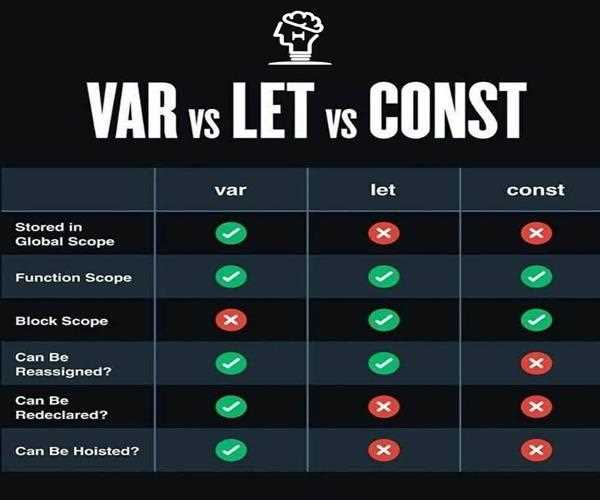In javascript var keyword is for function block scope and has been part of the javascript language since javascript was born. This means that variables declared with var are not restricted to the block they are defined in but they can be referred to anywhere in the function they are defined in except in other functions. This can lead to bugs, as the variable might be changed or used elsewhere by accident, due to which var is not as desirable for current day-to-day JavaScript development.
The let keyword is introduced in ES6 that provides the block level scope and thus, is safer than var. When declared with let, a variable is only accessible in the block, statement, or the expression for which it was declared. It minimizes the aberrant behavior of the variable by restricting the area of its use to the block. Also, allow reassignment, a win for programming when a variable’s value is to be altered within the course of execution while maintaining the variable’s name for consistency in the program’s readability, keeping it a plus.
While var and let are used in defining variables, const is used in defining the variables that carry data that should not be changed again. Although const does not make the value constant – this means the contents of objects or arrays declared with const can still be changed, it does not allow the variable to point to another value. Due to this, const is particularly useful for declaring constants or values that are expected to be immutable throughout the program’s lifecycle.

It is most useful when used with loops or conditional statements for restricting the scope of the variable to the block they’re in. On the other hand, var is not suitable when a variable is changed inadvertently because it has a function scope Since let allows developers to decide when and where to make variables available, let helps eliminate scoping errors.
Although var is still in use due to browser compatibility, it is best to use the let and const in current-day JS. Both provide more fine-grained decisions over variable scope and immutability. Letting for variables and const for value will reduce our development time as well as make our code readable and bug-free which eventually provides a good development experience.
Conclusion
In conclusion, When using JavaScript one has to make the right use of var, let, or const to achieve the proper structure of codes to avoid creating issues. Do not use var unless it becomes necessary because its scoping feature causes issues. When you want to declare a variable that is going to be reassigned at some point, use let, and for the ones that shouldn't be altered, use const. By using modern approaches, including let and const, you will write slick, better-performing, and easy-to-debug code.